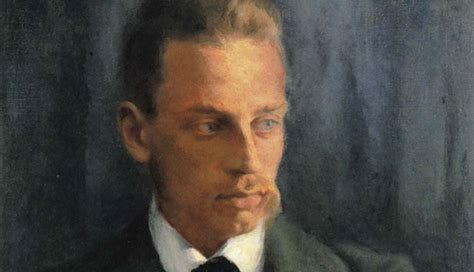Rainer Maria Rilke, one of the most spiritually attuned poets of modernity, often wove mysticism, transformation, and transcendence into his works. His poem Buddha in der Glorie (Buddha in Glory) is a stunning meditation on the nature of enlightenment, reflecting Buddhist principles of self-transcendence, non-attachment, and boundless compassion. In this article, we will explore Rilke’s poem through the lens of Buddhist thought, illuminating the depth of its spiritual insight.
Rainer Maria Rilke (1875–1926) was an Austrian poet and novelist, widely regarded as one of the greatest lyric poets in the German language. His works often explore existential themes, spirituality, and the search for meaning. Rilke’s Duino Elegies and Sonnets to Orpheus are considered masterpieces of modern poetry. He traveled extensively and was deeply influenced by art, philosophy, and mysticism, which is evident in his writings. His engagement with Eastern thought, including Buddhism, can be seen in poems such as Buddha in Glory.
The Poem: Buddha in der Glorie
German Original:
Mit jedem Schritt wirst du größer und keiner
führt dich von jenen fort, die zuerst dich liebten,
bis du am Ende du selbst dich überstiegst
und früh den fernsten fernsten Sternen nahst.
Erhaben, aus denen, die dich erst ahnten,
gehoben in deine eigene Glorie.
Nun ist nichts, das dich noch begrenzte; du bist
wie eine Morgengöttin, nur größer.
English Translation:
With every step, you grow larger, and none
takes you away from those who first loved you,
until, in the end, you surpass even yourself
and reach the farthest of the farthest stars.
Exalted, lifted from those who first sensed you,
raised into your own glory.
Now there is nothing that can still limit you;
you are like a morning goddess—only greater.
Keep reading with a 7-day free trial
Subscribe to The Gentle Law to keep reading this post and get 7 days of free access to the full post archives.





